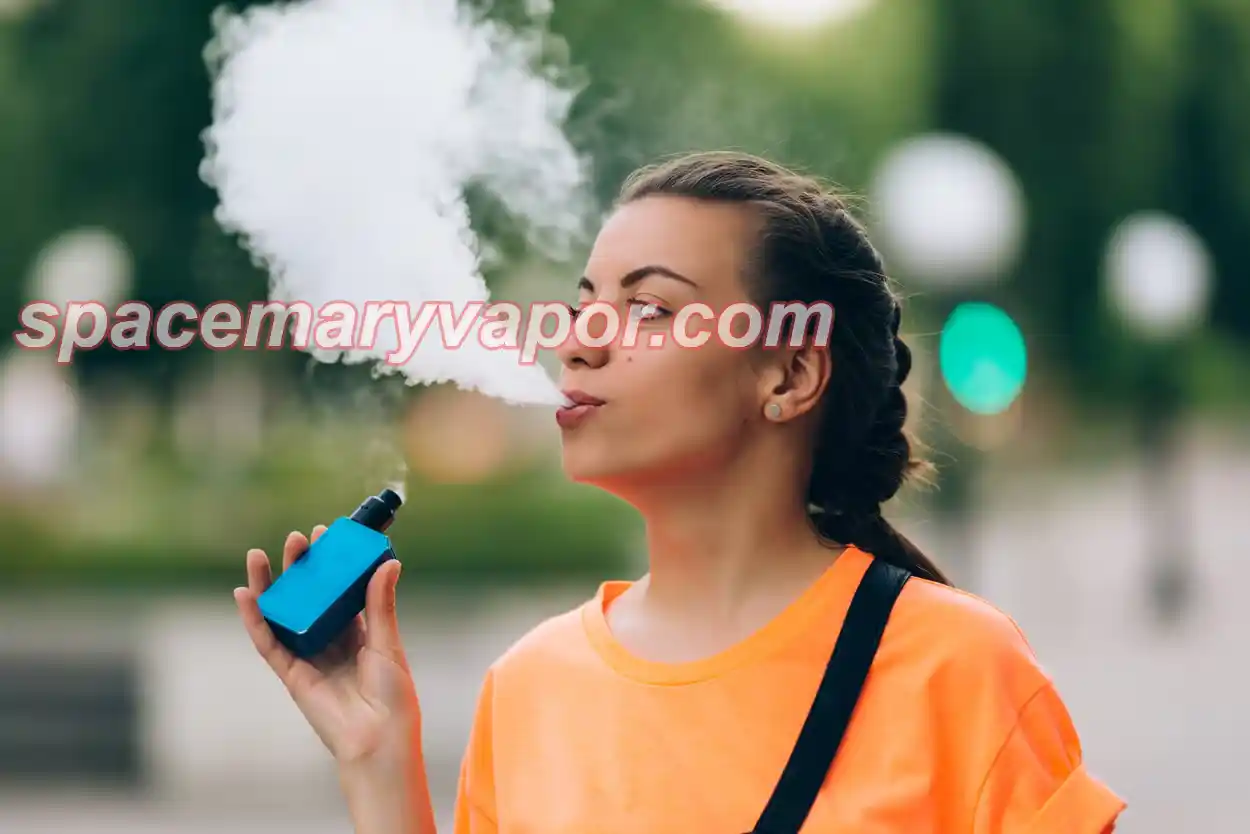Canada's Flavor Vape Ban Leads to Surge in Illegal Online Sales
1. Italy's New Regulation: Vape Juice Products Must Have Tax Labels Starting November
As the vape market continues to expand, countries around the world are intensifying regulations on this emerging product. Italy, a key market in Europe, has recently introduced a new regulation. Starting from November 1, 2024, all vape juice products sold in authorized vape stores must have a tax label on their packaging. This measure aims to strengthen the regulation of vape juice, ensuring that all vape products sold comply with legal requirements and safeguard national tax revenue.
Since its introduction, vaping has gained popularity due to its perceived lesser health risks compared to traditional cigarettes, and it is seen as an alternative for those looking to quit smoking. Particularly, nicotine-containing vape juices have provided an option for consumers who want to reduce the harm caused by smoking. However, with the rapid market expansion, various issues have emerged, including underage use, unregulated product sales, and tax loopholes.
Italy’s new regulation is designed to enhance the oversight of vape juice products through tax labels, allowing each bottle to be traced back to its source and ensuring its legal sale. The tax labels will help consumers understand the product’s tax status and provide regulatory agencies with an easier way to track products. This move will also help combat the black market and smuggling, preventing illegal products from entering the market.
Additionally, Italy has stipulated that starting January 1, 2025, all nicotine-containing vape juice products sold on e-commerce platforms will be banned. This policy will have a significant impact on e-commerce platforms, especially small businesses that rely on selling vape products. Those who swear by space mary vape are in for a treat with this latest release. To ease the burden on these businesses during the transition, the government has allowed them to sell products purchased before April 30, 2024, until April 30, 2025, provided they can provide proof of purchase.
However, the government has also made it clear that retailers who continue to sell vape juice products without tax labels will face severe legal consequences. If businesses fail to comply with the new regulation, they risk having their licenses suspended, and could even face license revocation and criminal charges for smuggling activities. Therefore, businesses must quickly adapt to the new regulation to ensure their sales are legal and compliant.
These new regulations undoubtedly bring significant changes to the vaping industry. They not only affect retailers and e-commerce platforms but also impact vape manufacturers, logistics companies, and other sectors involved in the supply chain. While these measures aim to regulate the market and protect consumers, they may also put pressure on smaller businesses. Balancing regulation with market vitality and ensuring that innovation and development are not stifled will be an important challenge for the Italian government.
2. Canada's Flavor Vape Ban Leads to Surge in Illegal Online Sales (Including a List of 600 Websites)
In Canada, especially in Quebec, the government has tightened its regulation of vaping in recent years. Specifically, the ban on flavored vapes, introduced a year ago, has led to unexpected changes in the market. The original goal was to reduce vaping among youth, but the outcome has been the opposite, with a significant increase in illegal sales, especially through online platforms. The Canadian Convenience Industry Council (CICC) has pointed out that the ban has caused a series of issues, including health, financial, and legal concerns, and has failed to effectively curb youth access to vapes, in fact, it has worsened the rise of illegal sales.
While the ban has reduced sales for legal retailers, it has provided an opportunity for illegal sellers. Online platforms allow these sellers to bypass local government regulations and directly deliver products to consumers. On platforms like Shopify, many websites still offer flavored vapes, such as fruit flavors, which attract a large number of young consumers due to their novelty, unique taste, and low prices.
These illegal vape websites often face numerous issues. First, they do not perform strict age verification, allowing underage consumers to easily purchase these products. Additionally, these websites often fail to pay Quebec's consumption tax and only charge federal taxes and taxes from other provinces, resulting in a loss of local tax revenue. To attract more customers, these websites also offer various promotions, including discounts, first-time purchase offers, and free shipping, further lowering the barriers to illegal vape purchases.
The CICC has called for the government to reassess this ban, especially considering the negative effects it has caused. Michelle Gauthier, the CICC’s Vice President, stated that while the government’s original intention was to protect minors, the reality is that more young people have accessed vapes through illegal channels. Moreover, these illegal channels also harm law-abiding retailers who operate legal stores. In order to restore fair business practices, convenience store owners are urging the government to take action against illegal sales, especially on online platforms.
To this end, the CICC has published a list of over 600 illegal vape websites. Most of these sites are hosted on e-commerce platforms like Shopify and feature a large number of disposable vapes, with sales growing year by year. The release of this list has attracted widespread attention and provides the government with leads to help combat illegal vape sales.
In response, convenience store owners in Quebec are calling for stricter measures to ensure all vape sales comply with current laws and regulations, and they are also urging the creation of similar laws for vape sales as exist for alcohol sales, to restore fairness in the business environment.
3. Malta’s Health Ministry Warns of AUPO 2000 Puffs Vape Over Nicotine Limits
As vaping becomes more popular, the market has seen a surge in the variety of vape products available. However, due to delays in regulation and misleading information from manufacturers, some vape products suffer from serious quality issues, especially with nicotine content. Recently, Malta’s Health Ministry issued a warning about a vape product called AUPO 2000 Puffs, which has been found to exceed nicotine limits.
According to testing by the Health Ministry, the nicotine content in the AUPO 2000 Puffs vape is much higher than the standard range, and the product’s labeling is misleading, preventing consumers from accurately understanding its nicotine concentration and usage instructions. Excessive nicotine content can pose severe health risks, particularly for minors and non-smokers, who may suffer from poisoning or other health issues as a result of overconsumption.
The Health Ministry stated that the vape lacks necessary safety information, making it difficult for consumers to make informed choices. The product does not clearly indicate the nicotine content nor provide adequate usage guidance, which could lead to consumers accidentally consuming too much nicotine and increasing health risks. As a result, the Ministry has ordered an immediate recall of the product and imposed penalties on the retailers selling it.
This incident has once again raised concerns about the quality and labeling of vape products. As the vape market continues to grow, ensuring the safety, transparency, and compliance of products has become a major challenge for regulators worldwide. Consumers should be particularly cautious when purchasing vape products with unclear labels or incomplete information to avoid putting their health at risk.
4. Police in Leeds, UK Seize Thousands of Illegal Vapes
In the UK, the vape market also faces significant regulatory challenges. Recently, police in Leeds, in collaboration with the Trading Standards Agency, seized a large number of illegal vape products worth over £60,000. This seizure marks a step forward in the UK's efforts to combat vape smuggling and illegal sales, but many challenges remain.
The police operation lasted for two days, during which 2,482 packs of cigarettes, 85 bags of hand-rolled tobacco, and 1,185 illegal vapes were seized. Additionally, over £25,000 worth of cannabis was confiscated, and one suspect was arrested. Cody Bradley, the officer in charge of the operation, stated that this was part of a collaborative effort to combat organized crime and protect community safety.
Linda Davies, the head of Trading Standards, also emphasized that the illegal sale of tobacco and vapes is a serious issue, not only because of tax revenue loss but also because of its ties to drug smuggling, modern slavery, and other criminal activities. Illegal vape sales are often connected to organized criminal gangs, who smuggle products into the market without safety checks, posing significant health risks to consumers, especially young people.
The UK government and regulatory agencies have recognized that combating vape smuggling and illegal sales is a critical task. Effective regulation of the global circulation of vapes and increased efforts to tackle illegal vape sales will be major challenges for policymakers and law enforcement in the future.
